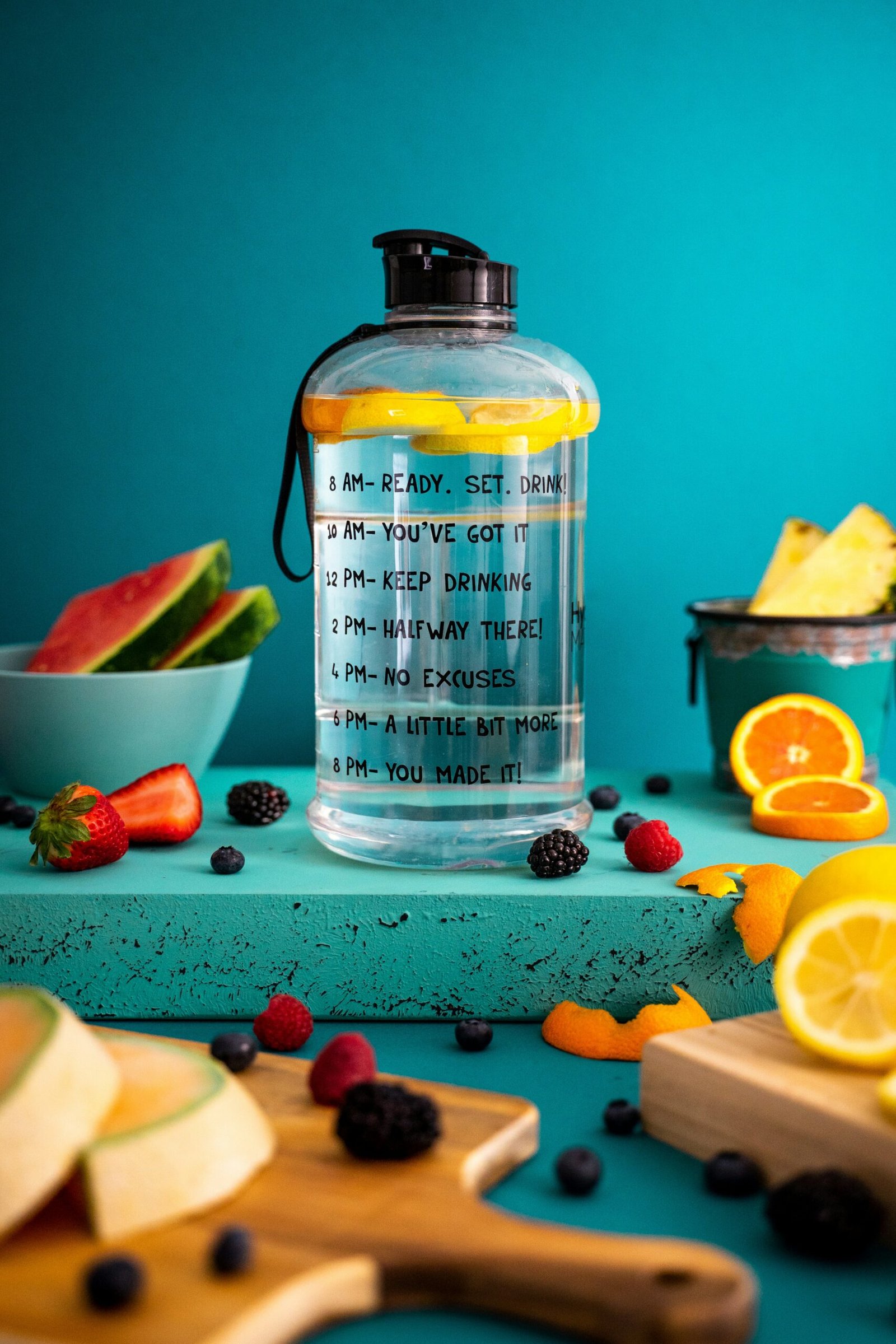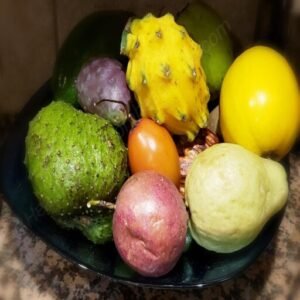Hydrating Fruits for Better Health

Introduction: The Importance of Hydration
Fruits are nature’s refreshing solutions for a healthy and well hydrated body. Hydration plays a pivotal role in maintaining overall health and well-being. The human body is composed of approximately 60% water, which underscores the significance of achieving adequate hydration levels for optimal physiological function. Proper hydration is not merely about thirst; it profoundly influences physical performance, cognitive function, and skin health. Understanding the implications of hydration can lead to better health choices and enhanced quality of life.
Firstly, hydration is crucial for athletic performance. During exercise, the body loses water through sweat, and if this fluid loss is not replenished, it can lead to impaired endurance, increased fatigue, and decreased coordination. Studies have demonstrated that even mild dehydration can significantly affect physical performance, highlighting the necessity of staying adequately hydrated before, during, and after physical activities. This is especially pertinent for athletes and those engaged in rigorous exercise, where optimal hydration can mean the difference between peak performance and exhaustion.
Secondly, the impact of hydration extends to cognitive function. The brain requires a consistent supply of water to operate at its best. Dehydration has been linked to difficulties in concentration, mood swings, and diminished memory capabilities. Ensuring adequate fluid intake can enhance mental clarity and cognitive performance, making it a crucial element for students, professionals, and anyone engaged in mentally demanding tasks.
Lastly, hydration significantly affects skin health. Dehydrated skin can lead to a range of issues, including dryness, flakiness, and more pronounced fine lines. Proper hydration helps maintain skin elasticity and suppleness, contributing to a youthful appearance. Consuming hydrating fruits can be an effective strategy to not only enhance water intake but also enrich the diet with vitamins and minerals that promote skin health.
In essence, understanding the importance of hydration sets the foundation for recognizing how specific fruits can serve as both effective and enjoyable means of staying hydrated.
Understanding Hydration: What Does It Mean?
Hydration is a vital aspect of human physiology, encompassing the process of maintaining an adequate balance of fluids within the body. Water serves numerous critical functions, including regulating body temperature, facilitating digestion, and transporting nutrients and oxygen to cells. Approximately 60% of the human body is composed of water, making it an essential element for survival.
When an individual becomes dehydrated, their body experiences several adverse effects. Dehydration occurs when the loss of body fluids exceeds the intake, which can result from various factors such as intense physical activity, inadequate fluid consumption, or hot weather. Early symptoms of dehydration may include thirst, dry mouth, fatigue, and dizziness. As dehydration progresses, more severe signs can manifest, including rapid heartbeat, dark urine, and confusion, which indicate a serious health risk requiring immediate attention.
Maintaining fluid balance is crucial for optimal physiological function. Adults typically need about 2 to 3 liters of water daily, although individual requirements may vary based on factors such as age, activity level, and environmental conditions. In addition to direct water intake, hydration can also be achieved through consuming foods with high water content. Fruits and vegetables, such as cucumbers, oranges, and watermelons, have significant water percentages, contributing to overall fluid intake.
Eating hydrating foods can supply not only water but also essential vitamins, minerals, and nutrients that support bodily functions. This is particularly important for individuals with increased hydration needs, such as athletes or those in hot climates. Therefore, appreciating the role of water in every aspect of health can enhance one’s approach to hydration, leading to better well-being and performance.

The Role of Fruits in Hydration
Fruits play a pivotal role in maintaining hydration levels, serving as natural sources of water that significantly contribute to daily fluid intake. With a composition that is often more than 90% water, many fruits can effectively quench thirst while simultaneously providing essential nutrients. This characteristic makes fruits not only refreshing but also a practical option for individuals who find it challenging to drink sufficient amounts of water throughout the day.
The high water content in fruits such as watermelon, cucumbers, oranges, and strawberries can be particularly beneficial, especially in hot climates or during intense physical activity. When people consume these hydrating fruits, they not only replenish lost fluids but also intake vitamins, minerals, and dietary fiber, which can further enhance overall health. For instance, vitamin C found in citrus fruits plays a vital role in immune function, while fiber supports digestive health. Consuming a variety of fruits ensures that the body receives a broad spectrum of nutrients while addressing hydration needs.
Moreover, fruit consumption can be an enjoyable alternative for people who may dislike drinking plain water. Incorporating fruits into meals and snacks is an effective strategy for boosting fluid intake. Adding slices of fruits to water or smoothies can create appealing hydration options that encourage individuals to consume more fluids throughout the day. Including fruits in salads or as a topping for yogurt can also elevate hydration efforts without compromising on taste.
In summary, the inclusion of hydrating fruits in one’s diet serves as a natural and effective means to enhance hydration. They cater not only to the body’s fluid requirements but also provide a plethora of nutritional benefits, making them an indispensable component of a balanced diet. Embracing various fruits can be a delightful way to ensure adequate hydration and overall well-being.
Top Hydrating Fruits: A Detailed Look
Proper hydration is essential for overall health, and certain fruits stand out for their exceptional hydrating properties. Among these, watermelon is often celebrated as the quintessential hydrating fruit, containing about 92% water. This fruit is not only refreshing, but it also provides essential vitamins such as Vitamin C and A, along with beneficial antioxidants like lycopene, which can support heart health and reduce inflammation.
Another highly hydrating option is cucumber. Though often categorized as a vegetable, cucumber is technically a fruit and boasts a water content of approximately 95%. In addition to its high hydration levels, cucumbers are low in calories and rich in nutrients, including Vitamin K and potassium, making them an excellent choice for those seeking a light, refreshing snack that supports skin health.
Oranges, with their bright and tangy flavor, are not only delicious but also a great source of hydration. Comprising around 86% water, oranges provide a significant boost of Vitamin C, which is essential for a robust immune system. Their high fiber content also aids in digestion, and consuming this juicy fruit can help you stay hydrated during hot weather, while also supplying your body with antioxidants that combat free radicals.
Strawberries are another fantastic option for hydration, containing about 91% water. This delightful fruit is rich in Vitamin C and manganese, and is known for its high antioxidant levels. The consumption of strawberries can offer various health benefits, including improved heart health and enhanced skin appearance. Moreover, they are versatile and can be easily incorporated into various dishes, from salads to smoothies.
Inclusion of these top hydrating fruits in your diet not only ensures adequate hydration but also contributes valuable nutrients to support overall health and well-being.
Nutritional Benefits Beyond Hydration
Hydrating fruits, known for their high water content, provide essential nutrients that extend beyond mere hydration. While adequate fluid intake is crucial for maintaining optimal body function, the vitamins, minerals, and antioxidants present in these fruits play a significant role in promoting overall health and wellness. Fruits such as watermelon, cucumber, and oranges not only quench thirst but also offer a plethora of health benefits.
One of the key advantages of hydrating fruits is their rich vitamin content. Many hydrating fruits, for instance, are excellent sources of vitamins A and C. Vitamin C is known for its role in strengthening the immune system, while vitamin A supports vision and skin health. Antioxidants found in fruits combat oxidative stress, reducing the risk of chronic diseases. Fruits rich in antioxidants help neutralize free radicals, contributing to overall cellular health and longevity.
In addition to vitamins, hydrating fruits contain essential minerals such as potassium and magnesium. Potassium is particularly important for heart health, as it helps regulate blood pressure and fluid balance within the body. Magnesium plays a crucial role in muscle function and energy production, which can enhance physical performance and aid in recovery after exercise. Incorporating hydrating fruits into your diet can therefore supplement your intake of these vital minerals.
Furthermore, the fiber content in many hydrating fruits aids digestion and promotes a healthy gut. A diet rich in fiber can help prevent constipation, control blood sugar levels, and lower cholesterol. The combination of hydration and fiber can create a feeling of fullness, assisting with weight management and reducing overeating. Thus, hydrating fruits offer a balanced approach to nutrition, supporting both hydration needs and overall health.
Creative Ways to Incorporate Hydrating Fruits into Your Diet
Hydrating fruits are not only delicious but also play a crucial role in maintaining our overall health by providing essential nutrients and keeping our hydration levels in check. Incorporating these fruits into your daily diet can be both enjoyable and nourishing. Here are some innovative ways to enjoy these fruits further.
One effective approach is to add hydrating fruits to your breakfast routine. For instance, consider combining watermelon or cantaloupe chunks with Greek yogurt and a sprinkle of granola for a refreshing parfait. Alternatively, you can blend fruits like strawberries and peaches into smoothies, creating a delightful beverage that is both hydrating and energizing. These vibrant colors and flavors not only enhance your morning, but they also contribute to your daily hydration needs.
In addition to breakfast, hydrating fruits can elevate your lunch and dinner meals. Think about crafting a fresh salad featuring diced cucumbers, cherry tomatoes, and juicy oranges. This combination adds a burst of flavor, while the high water content of these ingredients keeps the dish light and refreshing. For a twist on the classic fruit salad, try tossing together a mix of hydrating fruits, such as honeydew, kiwi, and blueberries, along with a squeeze of lime juice for an added zing.
Snacking is another opportunity to incorporate hydrating fruits into your diet. Prepare fruit kebabs using a selection of melon balls, pineapple wedges, and raspberries for a fun and nutritious snack. These kebabs are not only refreshing but can also serve as a delightful treat during warm days. You can also try freezing grapes or watermelon pieces for a cool, hydrating snack that satisfies your cravings without added sugars.
Lastly, hydrating fruits can be creatively used in various beverages. Craft infused water by combining slices of citrus fruits, cucumber, and mint leaves in a pitcher of water. This not only contributes to your hydration regimen but also enhances the water’s flavor, making it more enjoyable to drink. Smoothies, juices, and fruit-infused teas can also feature these vibrant fruits, presenting delicious ways to boost your hydration lifestyle.
Seasonal Fruits for Optimal Hydration
As seasons change, so do the fruits available for consumption, each offering unique hydration benefits. Incorporating seasonal fruits into one’s diet not only ensures superior flavor but also maximizes nutrient density. During the spring months, one can enjoy strawberries and watermelons, both of which boast high water content. Strawberries, with approximately 91% water, provide a refreshing snack that also delivers significant levels of vitamin C and antioxidants.
Moving into the summer season, fruits like cantaloupe and peaches become abundantly available. Cantaloupe, which is about 89% water, is ideal for hydration, while its beta-carotene content promotes skin health. Furthermore, peaches offer a sweet, juicy experience, making them a delightful and hydrating treat on hot days. Additionally, hybrids like the “nectarine” serve a similar purpose, enhancing the hydration experience with their juicy flesh.
In the fall, apples and pears come into season, both presenting substantial hydration benefits. Apples, containing roughly 86% water, are versatile in use—whether eaten raw or baked. They are rich in fiber, contributing to extended hydration since they support proper digestion. Pears, similar in water content, can further enhance a hydrating diet. Their unique flavor profile makes them a favored choice among seasonal fruits.
Finally, winter brings citrus fruits into the spotlight. Oranges, grapefruits, and tangerines not only provide hydration, with water content hovering around 86-93%, but also fortify the immune system during the cold months. These fruits are easily found at local markets, often showcasing vibrant colors indicative of their freshness and quality. By choosing to purchase seasonal produce, consumers can enjoy fruits at their peak ripeness, ensuring optimal taste and nutrient density.
Hydration Myths Debunked
There are numerous misconceptions surrounding hydration, particularly regarding the role fruits play in maintaining optimal fluid levels in the body. Many people believe that consuming fruits alone can sufficiently replace traditional sources of water, such as drinking plain water. However, while fruits do contain water and can supplement hydration, they should not be viewed as a sole substitute for regular fluid intake.
One common myth is that all fruits provide the same level of hydration. In reality, different fruits have varying water content. For example, watermelon and cucumbers are significantly higher in water compared to bananas or avocados. To effectively support hydration, it is important to incorporate a variety of fruits while ensuring that other fluid sources are also included in one’s daily diet.
Another misconception is that the hydrating properties of fruits are the same for everyone. Factors such as age, activity level, and environmental conditions greatly influence individual hydration needs. While consuming fruits can contribute to overall fluid intake, it is crucial to listen to one’s body and drink water as needed, especially during intense physical activity or in hot weather conditions.
Additionally, some individuals may believe that fruits rich in sugars can lead to dehydration. While excessive sugar intake can have health consequences, consuming fruits in moderation does not pose a risk to hydration. In fact, fruits also contain essential vitamins and minerals that support overall health and can aid in the replenishment of fluids lost during physical activity.
To summarize, while fruits are a valuable component of a hydration strategy, they should be complemented by adequate water consumption. Understanding the nuances of hydration can help individuals make informed decisions about their dietary choices and maintain optimal fluid balance.
Conclusion: Embrace Hydration with Fruits
Integrating hydrating fruits into your daily diet offers a multitude of benefits that go beyond mere hydration. Fruits such as watermelon, cucumbers, and oranges not only provide essential hydration but are also rich in vitamins, minerals, and antioxidants that contribute to overall health. These natural options serve as delicious and convenient ways to ensure optimal fluid intake, particularly in warmer months when hydration is crucial.
Moreover, consuming fruits high in water content can help satisfy cravings for snacks that are often less healthy. Replacing processed snacks with hydrating fruits encourages a more nutritious diet. Additionally, the high fiber content in many hydrating fruits aids in digestion, promoting gut health and a feeling of fullness that supports weight management efforts.
Furthermore, the versatility of these fruits allows for easy incorporation into various meals. They can be added to smoothies, salads, or enjoyed as standalone snacks. This not only enhances the flavor of dishes but also enriches them with hydration and nutrients. The consumption of hydrating fruits can become a fun and flavorful aspect of your diet, making adherence to healthy eating patterns more enjoyable.
As we become more aware of the importance of hydration for optimal body function, it is imperative to embrace these natural hydration sources. Prioritizing hydrating fruits within our daily intake can lead to improved energy levels, better skin health, and enhanced physical performance. By making a conscious effort to incorporate a variety of these fruits into our routines, we are taking significant steps toward achieving better health and well-being.


One Comment